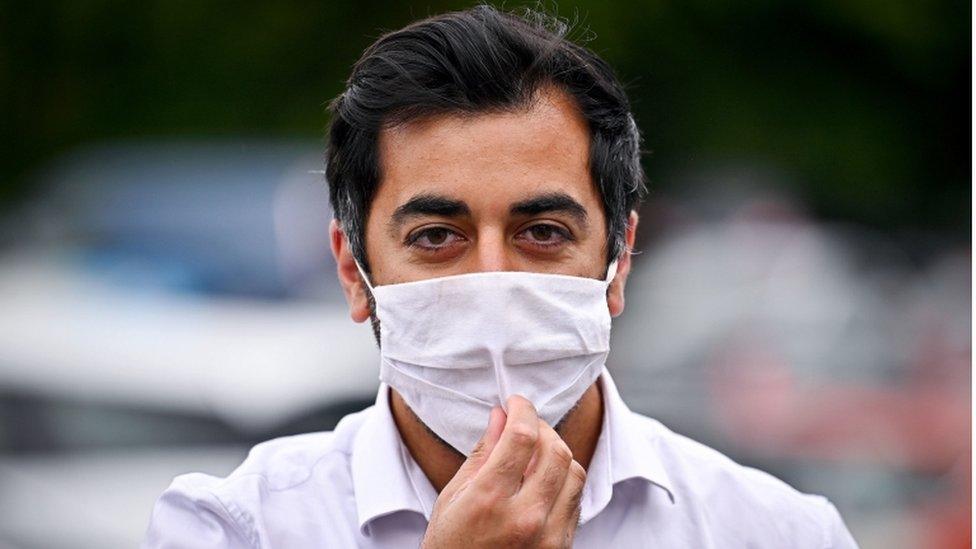Covid in Scotland: Recorded cases in children reach highest level
- Published
- comments
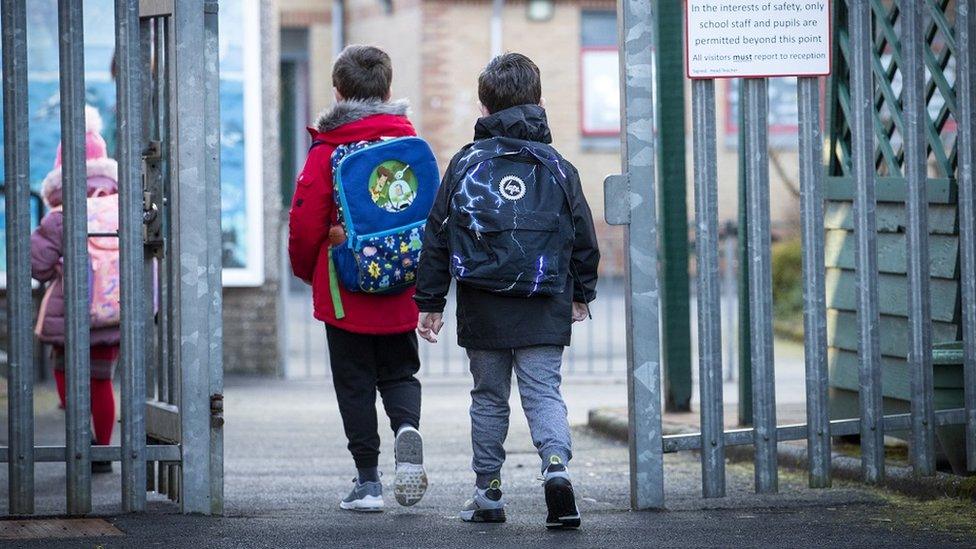
The number of infections among younger children has passed the peak in early January
Recorded Covid infections among children are now the highest they have been during the outbreak in Scotland.
Weekly infections in 0-14 year olds reached 1,064 on 7 June - higher than the peak in early January, according to Public Health Scotland.
While there is no evidence children are becoming seriously ill, growing numbers of pupils are off school.
Nicola Sturgeon has said Scotland would move quickly to vaccinate 12-15 year olds if recommended by the regulator.
The number of cases among the youngest age group is rising rapidly, having seen a near four-fold increase since early May.

Despite the rise, medics have said children's wards are not seeing any significant rise in admissions due to Covid and said there is no reason for parents to worry.
However, a number of schools have had to shut temporarily because of pupils testing positive, with St Peter's Primary in Galashiels among the latest to announce a short closure to allow contact tracing.
While most schools are open, growing numbers of pupils have been asked to stay home because they are possible contacts of pupils who have tested positive.
Provisional figures indicate 15,687 pupils were absent for Covid-related reasons at the end of last week, with overall attendance dropping to 87.8%, the lowest percentage since pupils returned after Easter.
Are pupil infections driving the rise in cases?
Children under the age of 15 represent about quarter of the daily case numbers in recent weeks in terms of total numbers.
However, when the size of the population in each age group is factored in, it is clear that infection rates are considerably higher among young adults and older teenagers.
On 7 June, the weekly case rate among people in their early 20s was 277.2 per 100,000.
Older teenagers had the second highest rate, at 228.4, while for younger children it was 122.9.

What is clear from the data is that infections among older age groups are relatively low during the latest outbreaks, possibly a reflection of the rollout of the vaccination programme.
More than half of Scotland's adult population has now had both doses of a Covid vaccine.
Should vaccinating children be a priority?
The UK regulator has approved the use of the Pfizer-BioNTech vaccine in children aged 12-15.
The Scottish government is now awaiting advice from the Joint Committee on Vaccination and Immunisation (JCVI) on whether it should begin vaccinating children.
On Tuesday the first minister said the focus remained on getting all adults vaccinated but if the JCVI recommends vaccination of children, she said Scotland would "move as quickly as possible to implement the advice".
Scottish government adviser Prof Devi Sridhar has backed the rollout of the vaccine to those over the age of 12.
Speaking to ITV's Good Morning Britain earlier this week, she said: "If we want schools to continue without disruption in the autumn and lift restrictions so children can have a normal experience, we need to vaccinate them — if we wait and watch for the evidence it will be too late in the next few weeks.
"We have the supply. It's not a large amount, it's a couple of million doses to cover that population of 12-plus.
"Given that we know children can transmit, where we are going to see problems is not going to be in care homes, it's not going to be in hospitals, it's going to be in schools."
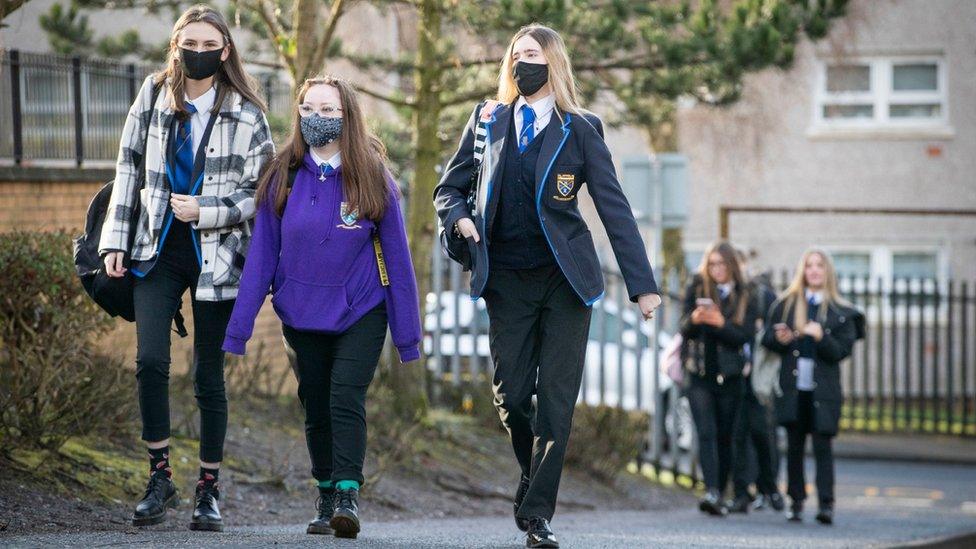
High school pupils in Scotland retuned to face-to-face lessons after the Easter holidays
Another leading health expert, Prof Linda Bauld, has said she "really welcomed" plans to vaccinate teenagers but said completing the adult age groups must come first.
She told the BBC's Good Morning Scotland programme: "They will be next in line after we have issued vaccinations to all the 18-29 year olds, as Wales has already done. I really welcome the vaccine programme for teenagers... it will make a difference but they will not be able to receive it until older groups have.
"Over two million teenagers in the US have already received the vaccine, the trials suggest it's safe, so let's hope this all goes well."
Ethical question
With world leaders facing calls to do more to share vaccines internationally, some have argued a greater priority should be driving down infections globally, which could be the source of new variants.
Christine Tait-Burkhard, an infection expert from University of Edinburgh, said it was a complex issue because while vaccination might help school attendance, there is little evidence of children becoming seriously ill.
She told Drivetime with John Beattie: "The last question is an ethical one. If we are starting to vaccinate children in this country yet other countries haven't got any vaccines or very little vaccines to vaccinate their most vulnerable.
"It is not only an ethical question, it's also a message that it sends to the world that says we don't care."
Prof Adam Finn, a member of the Joint Committee on Vaccination and Immunisation, has said that if enough immunity was built up through the adult vaccination programme then vaccinating children may not be justified.
He said: "The issue is not that there's a problem doing it, it's just a question of whether we need to do it, given the very low incidence of serious illness in children and the fact that we're achieving so much with the adult programme at the moment with very high coverage.
"If indeed it turns out that children can be indirectly protected by the immunity that we induce in adults then there's clearly no justification for immunising - or at least immunising all of them."


- Published4 June 2021
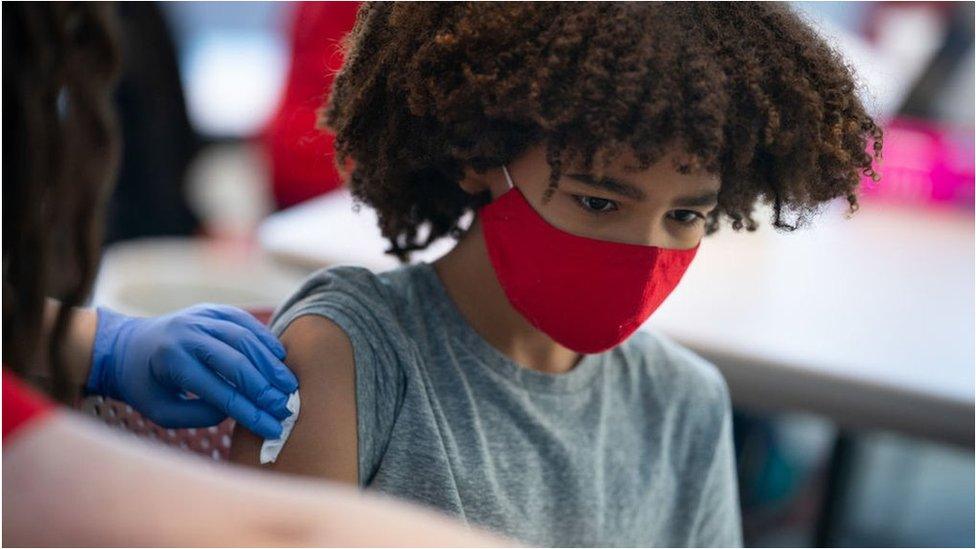
- Published3 June 2021
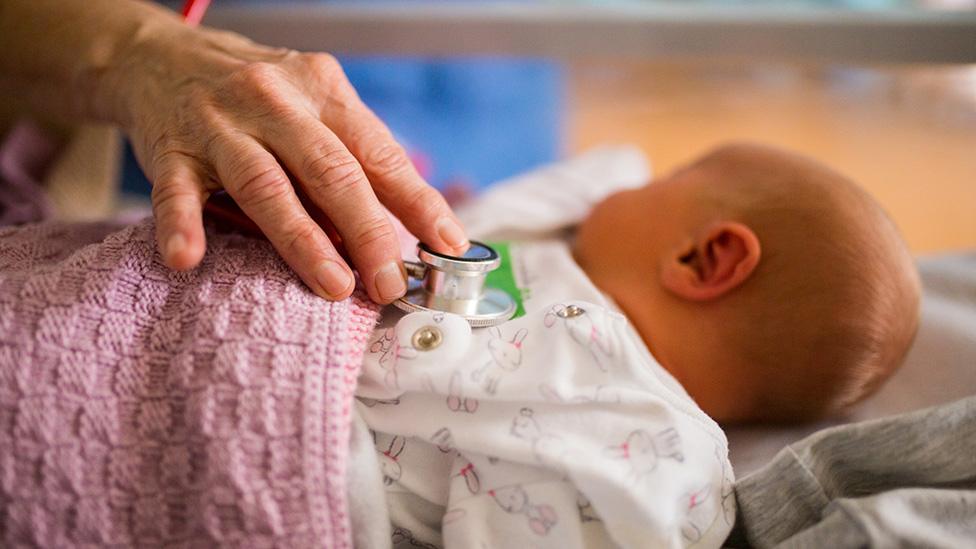
- Published6 June 2021
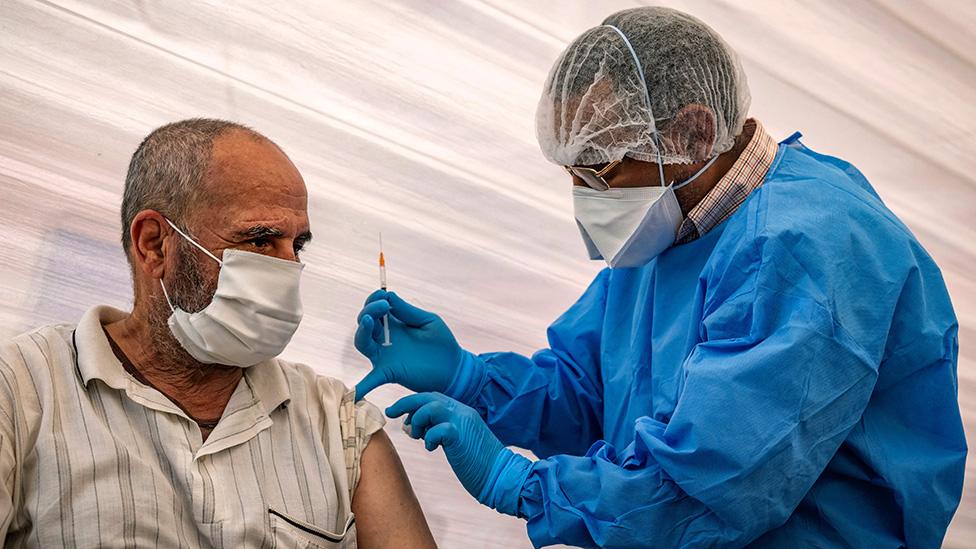
- Published4 June 2021
